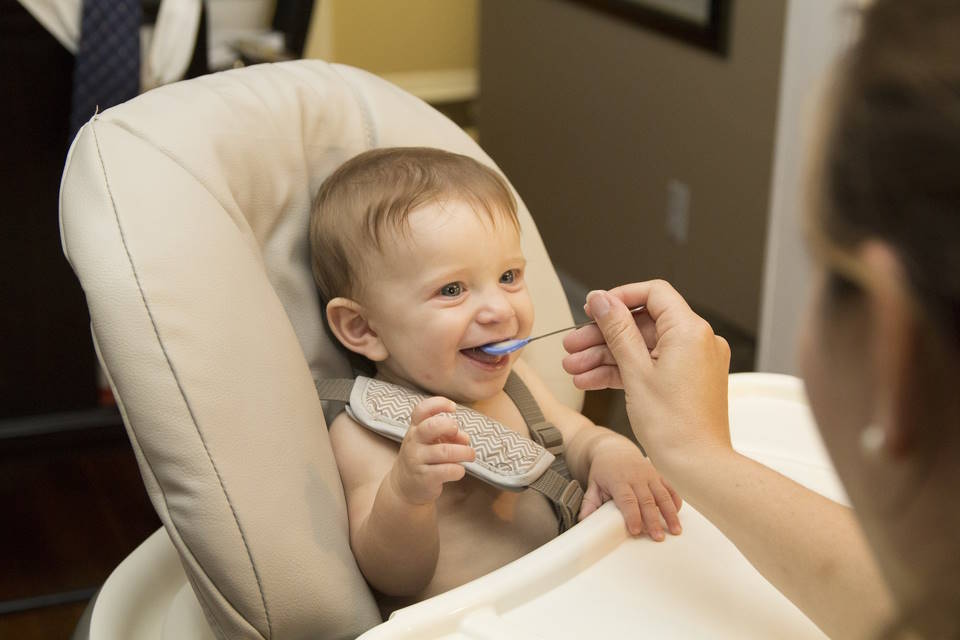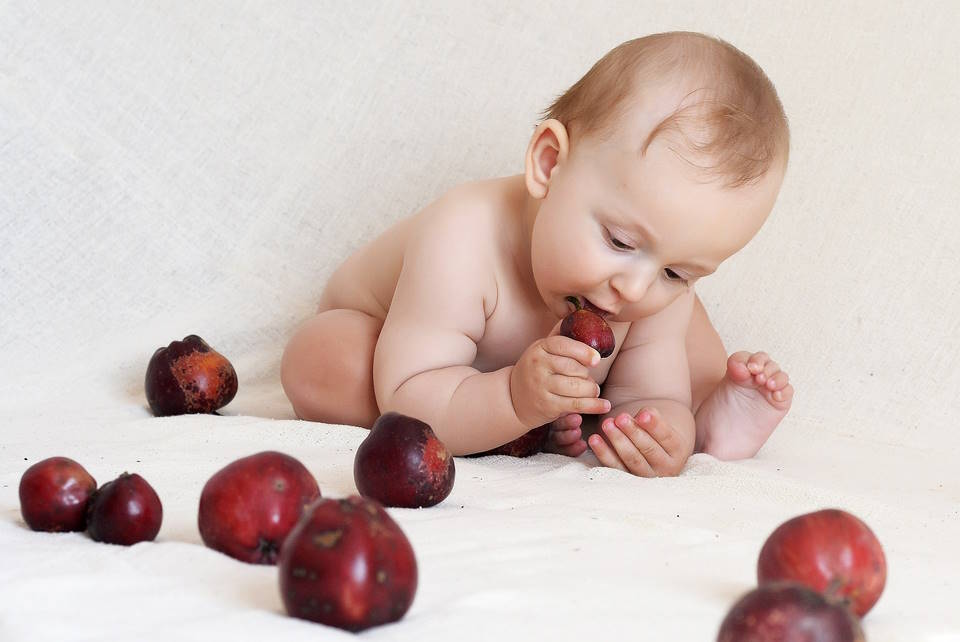As new parents, it’s natural to have countless questions about your baby’s development, including when their taste buds will start to develop. Taste buds are crucial for our sense of taste and influence our food preferences. It’s no wonder parents are curious about when their little ones will start to taste different flavors. We’ll answer some common questions about babies’ taste buds, including when they develop, when babies can start tasting food, and whether or not breast milk can carry flavors. We’ll also address the topic of introducing babies to new tastes, such as ice cream. So, keep reading to learn all about babies’ taste buds and how you can help cultivate a diverse palate for your little one.
Introduction
Babies have a natural curiosity and interest in exploring their world. They use their senses, including taste, to learn about their surroundings. Taste buds play an important role in this process, allowing babies to perceive and enjoy different flavors. But when exactly do babies taste buds develop?
The answer to this question is that babies actually start developing taste buds while still in the womb. By about 13 weeks gestation, the baby’s taste buds have formed and they are able to taste the flavors of the amniotic fluid. The amniotic fluid is influenced by the foods that the mother eats, so the baby is already getting exposed to different flavors before even being born.
After birth, babies continue to develop their taste buds. At birth, a baby has about 10,000 taste buds, which is significantly more than an adult has. However, not all of these taste buds are functioning and many will disappear as the baby grows. By around 2-3 years of age, a child will have the same number of taste buds as an adult, which is around 2,000-4,000.
So, what foods can babies taste?
- Babies are born with a preference for sweet flavors and a dislike of bitter flavors, which is thought to have evolved to help them seek out breast milk, which is naturally sweet. As they continue to develop their taste buds, babies become more open to other flavors.
- While breastmilk is naturally sweet, it can also be flavored by the foods that the mother eats, which can influence the baby’s tastes.
- As babies start to eat solid foods, they may have a preference for bland and simple flavors, but it is important to expose them to a variety of tastes and textures to help them develop a more diverse palate.
When Can Babies Start Tasting Things?
As soon as babies are born, they begin exploring the world around them using their five senses. Taste is one such sense that babies begin to develop as they grow. But when can babies start tasting things? Let’s find out.
When does a baby’s sense of taste develop?
A baby’s sense of taste starts developing when they are still in the womb. In fact, research suggests that a baby’s taste preferences can be influenced by the food their mother eats during pregnancy. By the time babies are born, they already have a basic sense of taste, which allows them to differentiate between sweet, salty, bitter, and sour flavors.
When do babies start exploring different tastes?
- Between 4 to 6 months: This is the ideal time to introduce solid foods to babies. At this age, babies have developed the muscle control they need to swallow solid food and are also able to sit up with support. Offering a variety of flavors and textures at this stage can help broaden a baby’s taste preferences and make them less likely to be fussy eaters in the future.
- Between 6 to 8 months: By this time, babies have developed their chewing and swallowing skills and can handle chunky and mashed foods. It’s a good idea to offer a variety of tastes and textures at each meal and let babies explore different foods at their own pace.
- After 8 months: By this stage, babies are more willing to try new foods and may be interested in trying foods that are spicier or more strongly flavored. However, it’s important to introduce new foods gradually and watch out for any signs of allergies or intolerance.
What can I do to encourage my baby to try new tastes?
Here are some ways to encourage your baby to explore different tastes:
- Offer a variety of foods: Introduce your baby to a variety of fruits, vegetables, grains, and protein sources to help them develop a taste for different foods.
- Make eating fun: Let your baby try finger foods and explore textures and tastes on their own. Eating should be a fun and positive experience for your baby.
- Lead by example: Let your baby see you enjoying a variety of healthy foods. Babies are more likely to try something if they see their parents or other family members enjoying it.
Keep in mind that every baby is different, and it may take time for your baby to develop a taste for certain foods. Be patient and keep offering a variety of foods to help your baby develop a well-rounded sense of taste.
Do 2 Month Olds Have Taste Buds?
As a new parent, you may be wondering when certain milestones happen for your baby. One question that may come to mind is, “Do 2 month olds have taste buds?” The answer is yes, they do. In fact, babies are born with all the taste buds they will ever have, around 10,000 of them! However, their taste buds are not fully developed at birth and continue to mature and change throughout their first year of life.
At 2 months old, your baby’s taste buds are still developing and may not be as sensitive to certain flavors as an older child or adult. They are more likely to prefer sweet flavors over bitter or sour ones. Breast milk or formula are the primary sources of nutrition for your baby at this age, and they are naturally designed to taste sweet.
- When introducing new flavors to your baby’s diet, it is important to do so gradually and in small amounts.
Introducing solid foods typically doesn’t happen until around 6 months of age, but some parents may choose to start earlier. If you do introduce solid foods before 6 months, it is important to consult with your pediatrician beforehand.
| DOs | DON’Ts |
|---|---|
| Introduce new flavors one at a time | Force feed your baby |
| Offer foods that are appropriate for their age | Give your baby foods that are choking hazards |
| Encourage your baby to try new foods | Add salt or sugar to your baby’s food |
Can Baby Taste What I Eat In Breast Milk?
As a new parent, you may have a lot of questions about breastfeeding and what you should be consuming to ensure the best possible nutrition for your baby. One question that often comes up is whether your baby can taste what you eat through your breast milk.
The answer is yes, your baby can taste what you eat. In fact, research shows that the taste of breast milk can vary depending on what the mother has eaten. Flavors from your diet can be transmitted to your baby and can influence their taste preferences later in life.
It is important to note that not all flavors are transmitted equally. For example, strong or spicy foods may cause discomfort for your baby, leading to fussiness or refusal to nurse. It is also important to maintain a balanced diet and to avoid consuming large amounts of caffeine, alcohol, or highly processed foods.
To ensure your baby’s optimal nutrition, it is recommended to consume a well-rounded diet that includes:
-
- Fruits and vegetables
- Lean protein sources
- Whole grains
- Healthy fats
- Adequate hydration
While it is okay to indulge in moderation, it is best to avoid giving your baby sweets or highly processed foods, such as ice cream, until they are older and able to handle solids. It is also important to introduce new foods slowly and monitor your baby’s reactions.
Can I Give My 1 Month Old a Taste of Ice Cream?
When it comes to feeding babies, parents often have a lot of questions. One common question that comes up is whether or not it’s safe to give a baby a taste of ice cream. As tempting as it may be to share a bit of your favorite treat with your little one, there are some important things to consider before doing so.
First and foremost, it’s important to remember that a baby’s digestive system is still developing at one month old. While breast milk or formula are the best sources of nutrition for a baby at this age, introducing other foods too early can potentially cause issues like allergies or digestive problems. As such, it’s generally not recommended to give a baby any solid foods, including ice cream, until they are at least 6 months old.
Additionally, ice cream is typically high in sugar and fat, which can be difficult for a baby’s body to handle. Babies under 1 year old should not consume foods with added sugars. Eating too much fat can also be harmful, as it can disrupt the balance of nutrients that a baby needs to grow and develop properly.










